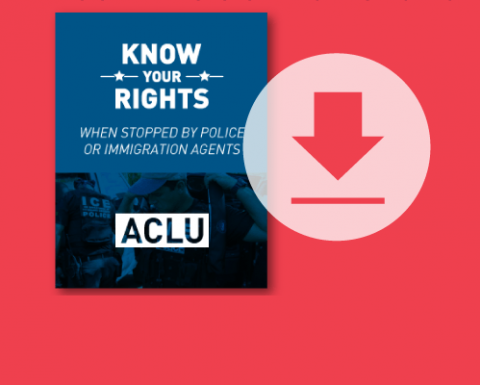The latest content and updates from the ACLU of Washington website.
Latest From ACLU of Washington
Order on Plaintiff's Motion for Summary Judgement and Defendant Lay's Motions to Dismiss
Document, Published:
Monday, October 25, 2010Court Document:
Amazon.com v. LayComplaint in Intervention for Declaratory and Injunctive Relief
Document, Published:
Saturday, October 16, 2010Court Document:
Amazon.com v. LayBainbridge Island Police Guild v. Koening
Document, Published:
Friday, October 15, 2010Court Document:
Bainbridge Island Police Guild v. Koening



